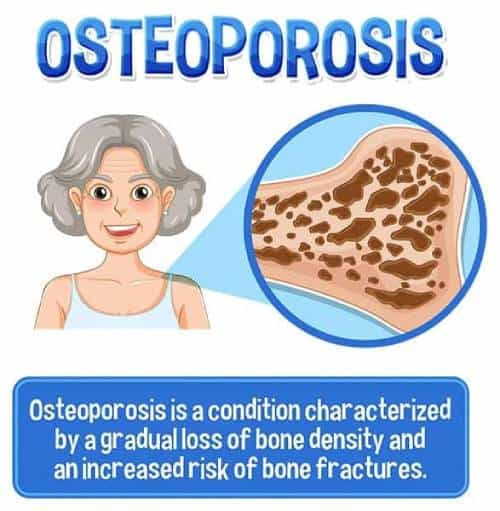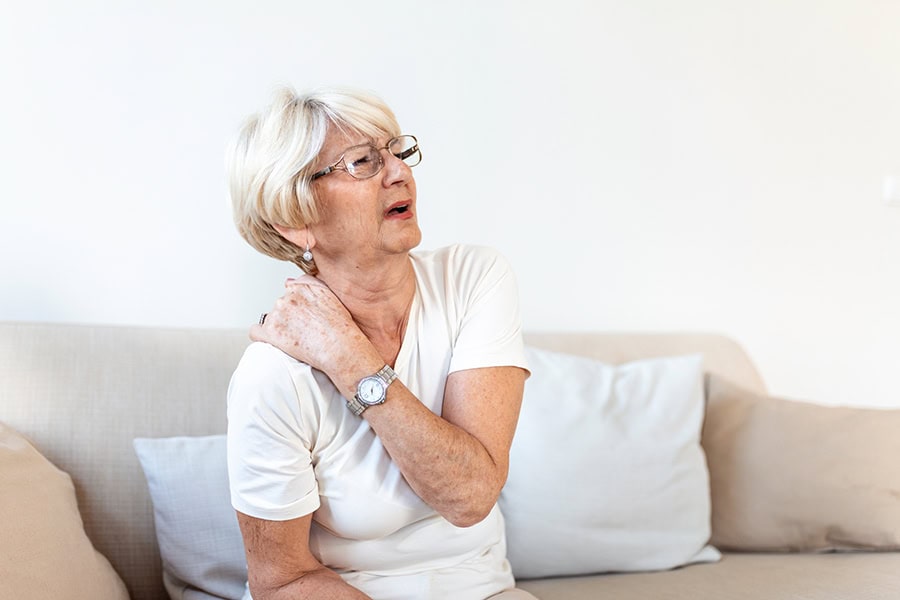Osteoporosis and what to do
Osteoporosis and what to do
In the battle with the challenges of osteoporosis, early diagnosis and proper management are the ways to regain quality of life. Mr. Ogho Obakponovwe has been of great help to numerous patients in regaining their independence and confidence by guiding them through tailor-made treatment plans. His expertise not only relieves pain and discomfort but also empowers patients to take proactive steps in managing their bone health. His empathetic approach ensures that the patients are able to live an active, fulfilling life and reduce chances of fractures and other complications associated with osteoporosis.
What is Osteoporosis ?
Osteoporosis is a condition that weakens bones and makes them more likely to break. It can happen to anyone, but it’s more common in older women.
When you have osteoporosis, your bones don’t repair themselves as well as they used to. This means that your bones can become thinner and weake
It occurs when the creation of new bone doesn’t keep up with the loss of old bone, resulting in reduced bone density and quality.

What are early signs of Osteporosis?
What are early signs and symptoms of Osteoporosis?
- Bone pain for no obvious reason
- You’ve broken a bone from a minor fall or accident.
- Sometimes there may be no signs and it can progress silently only picked up when you break a bone.
- You’ve lost height over time.
- Back pain from fractured or collapsed vertebrae.
- Loss of height over time.
- Stooped posture (kyphosis).
A short informative video on Osteoporosis awareness
Causes of Osteoporosis

- Aging: Bone density naturally decreases with increased age.
- Hormonal Changes: Decreased estrogen in women (post-menopause) and testosterone in men can contribute.
- Nutritional Deficiencies: Inadequate levels of calcium and vitamin D.
- Lifestyles: Sedentary lifestyle, smoking, excessive alcohol intake.
- Medical Conditions/Medications: Rheumatoid arthritis and other systemic diseases or long-term corticosteroid treatment may increase the risk.

Detection of Osteoporosis

Bone Density Test: A DEXA (dual-energy X-ray absorptiometry) scan measures bone mineral density.
On the Dexa scan results if your T- score is:
- -1 or higher, your bone is healthy.
- –1 to –2.5, you have osteopenia, a less severe form of low bone mineral density than osteoporosis.
- –2.5 or lower, you might have osteoporosis.
Treatment and Prevention:

- Diet: Adequate intake of calcium with food (dairy, leafy greens) and vitamin D.
- Exercise: Weight-bearing and resistance exercises strengthen bones.
- Lifestyle Modifications: Smoking cessation, reduction of alcohol, and prevention of falls.
- Drugs/medications: These could include bisphosphonates, hormone replacement therapy, or newer drugs such as denosumab.
When should you visit the specialist?
Treatment for Osteoporosis, involves high calcium and protein diet, exercises and physiotherapy or medications. If these remedies do not seem effective in relieving your symptoms, your GP will refer you to Mr. Ogho Obakponovwe, who may determine whether you would need further investigations like x-rays or MRI scan to establish the dignosis of Osteoporosis
For private patients or those using health insurance, it is possible to go directly to Mr. Obakponovwe and arrange for a consultation without needing to be referred by a GP.
Mr. Obakponovwe applies various modalities in the management of Osteoporosis, such as medical treatment,treatment of acute fracture. He may have to seek further opinion from rheumatologist if necessary or where you may need more intervention like injections.
Frequently asked Questions:
Being Male / Female matter?
- The risk for osteoporosis and osteopenia—low bone density that’s not yet in the osteoporosis range—is higher in women because female bones typically are smaller and less dense than male bones.
I am at menupausal age
- The risk increases at menopause, when levels of bone-bolstering estrogen fall. But men are also at risk. A family history of osteoporosis-related fractures boosts odds for both sexes
How much Calcium intake should be there?
Aim for these calcium levels:
- 1,000 milligrams daily for women age 50 and younger and for men 70 and younger
- 1,200 milligrams daily for women over age 50 and men over 70
“The one exception: People on dialysis due to kidney failure should talk with their doctor about the right calcium intake for them
Does taking Vitamin D help?
- Getting enough vitamin D helps with calcium absorption and incorporation into your bones. “The current recommendation is 600 IU of vitamin D per day through age 70 and 800 IU per day after age 70
How to minimise my chances of developing arthritis?
- To reduce the risk of certain types of arthritis, one can keep a healthy weight and eat a healthy diet. Keep a regular exercise program at low-impact cardio and some strength training so that the muscles around your joints are strengthened to support your joints better.
If you are considering an opinion or treatment about your Osteoporosis problem and would like to learn more about your options, please contact Mr Ogho Obakponovwe’s practice.
We are here to answer your questions and help you take the first step towards a pain-free, active life.
At the practice of Mr Ogho Obakponovwe, we are committed to providing exceptional care and helping you achieve a better quality of life through expert knee replacement surgery. Your journey to improved mobility starts here.
Ready for pain-free life?
Take the Next Step
Connect with us and reclaim your active lifestyle today. Schedule a consultation today and take the first step towards recovery.
